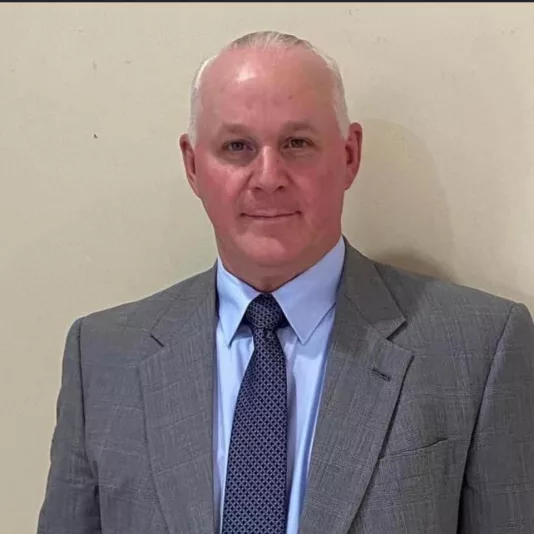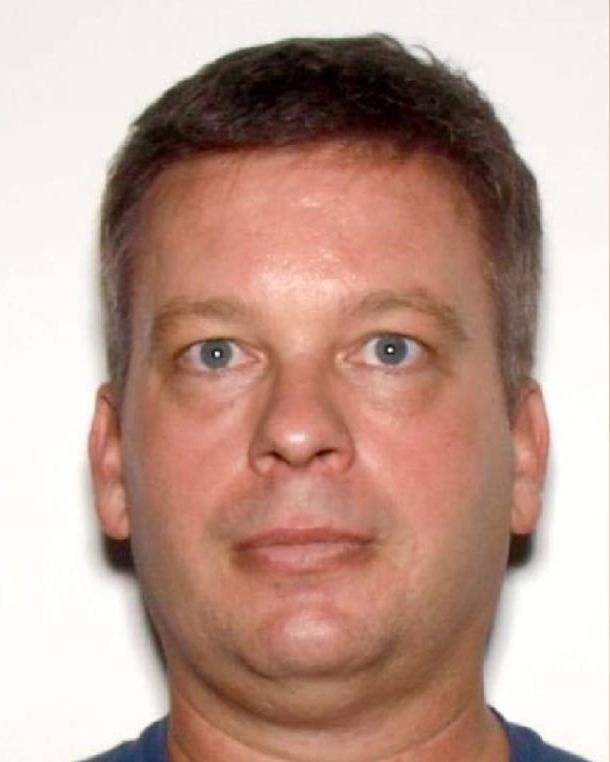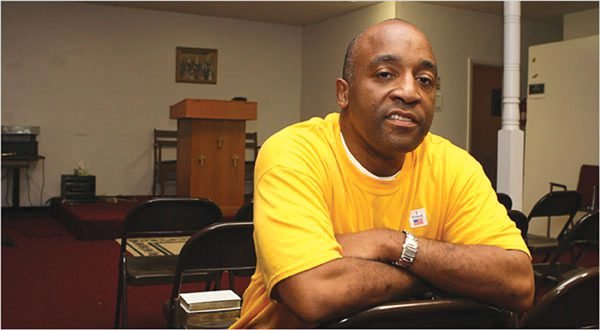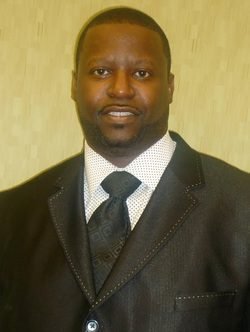
The Black Collar Crime Series relies on public news stories and publicly available information for its content. If any incorrect information is found, please contact Bruce Gerencser. Nothing in this post should be construed as an accusation of guilt. Those accused of crimes are innocent until proven guilty.
Ross Miceli, a priest at St. Jude the Apostle Church in Erie, Pennsylvania, stands accused of rigging a church raffle so he would win one or more of the prizes. As of this date, no charges have been filed.
A Pennsylvania pastor is under criminal investigation after authorities say he fabricated the winner of a church raffle that promised a brand-new Chevrolet Corvette Stingray or $50,000 in cash.
According to the Erie County District Attorney’s Office, Rev. Ross R. Miceli of St. Jude the Apostle Church in Erie is accused of falsifying raffle results, inventing names for multiple prize winners, and moving the grand prize money into a separate account.
The 2024 raffle, which sold $50 tickets, was designed to raise as much as $500,000 for the parish. The grand prize was an Amplify Orange 2024 Corvette Convertible 1LT or a $50,000 payout. Smaller “12 Days of Christmas” prizes, worth $500 each, were also offered in the lead-up to the Dec. 24 drawing.
Officials say the winning four-digit ticket number was matched to a man identified by Miceli as “Martin Anderson of Detroit,” who allegedly chose the cash option. Investigators now allege that Anderson does not exist and never purchased a ticket.
Court documents further claim Miceli admitted to making up the names of at least four $500 prize winners, reportedly choosing friends or favored parishioners when no actual winners were tied to the drawn numbers.
The Erie Times-News reports that Miceli told investigators he moved the $50,000 grand prize from the raffle account into an interest-bearing church account. Authorities are reviewing whether that transfer violated state law.
Miceli, 42, has stepped down from St. Jude and is reportedly being reassigned to two smaller parishes in Clearfield County while the investigation continues. No charges have been filed as of Monday, but the case remains active.
If proven true, the allegations could result in theft, fraud, and records-tampering charges against the pastor.
Go Erie adds (behind paywall):
As it had done for years, St. Jude the Apostle Church in 2024 sold tickets for its well-known and lucrative charity car raffle. The grand prize was a new Chevrolet Corvette.
The sports car, an $82,000 orange convertible Stingray 1LT, sat on display on the edge of St. Jude’s greenspace at the southeast corner of West Sixth Street and Peninsula Drive in Millcreek Township.
The tens of thousands of motorists who drove by the corner, many on their way down Peninsula Drive and headed to the Waldameer amusement park and Presque Isle State Park, could not miss the Corvette as an advertisement for the raffle.
Tickets were $50 each. The grand-prize winner could pick the car or $50,000 in cash.
St. Jude, one of the largest parishes in the 13-county Catholic Diocese of Erie, hoped to sell 9,999 tickets to raise nearly $500,000. The raffle was administered online, giving raffle and Corvette enthusiasts from across the United States the chance to purchase electronic tickets.
The grand-prize drawing was on Christmas Eve.
St. Jude said ticket holders were assigned random numbers via computer. The four-digit number on the winning ticket had to match the winning number in that evening’s Pick 4 Pennsylvania Lottery drawing.
The Pick 4 number was 5851.
The winner of the Corvette, according to the pastor of St. Jude, the Rev. Ross R. Miceli, was Martin Anderson, a resident of Detroit.
Anderson chose the $50,000 in cash, Miceli said in naming him as the winner in a post dated Dec. 24 on the raffle’s Facebook page.
Anderson, however, did not hold the winning ticket in the car raffle.
He never bought a ticket at all.
Miceli is accused of making up the name “Martin Anderson” as the winner of the $50,000. The Erie County District Attorney’s Office is investigating Miceli on allegations that the 42-year-old priest rigged the Corvette raffle, tampered with its records and committed theft.
The allegations and details of the investigation are included in a series of search warrants that detectives with the District Attorney’s Office served on St. Jude’s offices starting March 14.
One of the warrants states that, in an interview with detectives on March 14, Miceli “admitted to publicly falsifying the results of the grand prize winner.”
No one has been charged in the case, and the investigation is continuing, District Attorney Elizabeth Hirz said. She declined to comment further, citing the pending probe. She said the Catholic Diocese of Erie has fully cooperated with detectives and that the diocese promptly reported its concerns about the raffle to her office.
The Catholic Diocese of Erie had not commented publicly on the problems with the raffle until the Erie Times-News contacted Bishop Lawrence T. Persico’s office about the search warrants on Aug. 4.
The diocese said it had to limit its comments because of the ongoing criminal investigation.
…
The diocese, according to the search warrants, told the District Attorney’s Office that it became aware of the situation atfer an employee at St. Jude raised concerns about the raffle to Persico.
Miceli confided in the employee, and “Father Miceli admitted that he fabricated the grand-prize winner’s name,” according to the affidavits of probable cause attached to the search warrants. The affidavits identify Miceli by name, but not the employee.
Miceli, according to the affidavits, told the employee he made up the winner’s name because “there had been a problem with the raffle system, so the winning ‘Pick 4’ number, ‘5851,’ didn’t have anyone assigned to it.”
After the employee reported the admission to Persico, according to the affidavits, “Bishop Persico confronted Father Miceli about this allegation, and Father Miceli admitted to fabricating the grand prize winner’s name but insisted the prize money was still in an account.”
On Feb. 26, detectives interviewed the employee who said he had spoken to Persico. The employee told the detectives Miceli told him he “had made the name up, as the winner, and an internet search revealed there are over 100 ‘Martin Anderson’s’ in the U.S.,” according to the affidavits. Miceli, according to the affidavits, “made mention” that the employee “needed to keep this secret.”
Another affidavit refers to “Martin Anderson” and states “no such individual exists and no money was distributed.”
Among the items to be seized, according to the search warrants, was “Internet research history conducted while planning, executing or relating to the Winavette raffle, Martin Anderson and other winners.”
….
The grand prize was not the only part of the raffle that Miceli manipulated, according to the allegations in the search warrants. The St. Jude raffle also featured the “12 days of Christmas,” in which raffle winners could win $500 a day leading up to Christmas Eve.
Miceli made up some of the winners for the $500 prizes, according to affidavits for some of the warrants.
In an interview with the detectives March 14, according to the affidavits, Miceli “admitted to publicly falsifying the results of the grand prize winner for the raffle. (He) also admitted to four other occasions, during the ’12 days of Christmas’ 2024, where there was no name associated with the winning number, so he personally chose the winners. The winners he chose were either favored parishioners or family friends.
“He also admitted to moving the $50,000 from the car raffle account to another account, because the other account was an interest-bearing account. When asked if the account was in his name or the church’s, he related the account belongs to the church. We learned that Father Ross solely oversees the bank accounts.”
Bruce Gerencser, 68, lives in rural Northwest Ohio with his wife of 47 years. He and his wife have six grown children and sixteen grandchildren. Bruce pastored Evangelical churches for twenty-five years in Ohio, Texas, and Michigan. Bruce left the ministry in 2005, and in 2008 he left Christianity. Bruce is now a humanist and an atheist.
Your comments are welcome and appreciated. All first-time comments are moderated. Please read the commenting rules before commenting.
You can email Bruce via the Contact Form.










